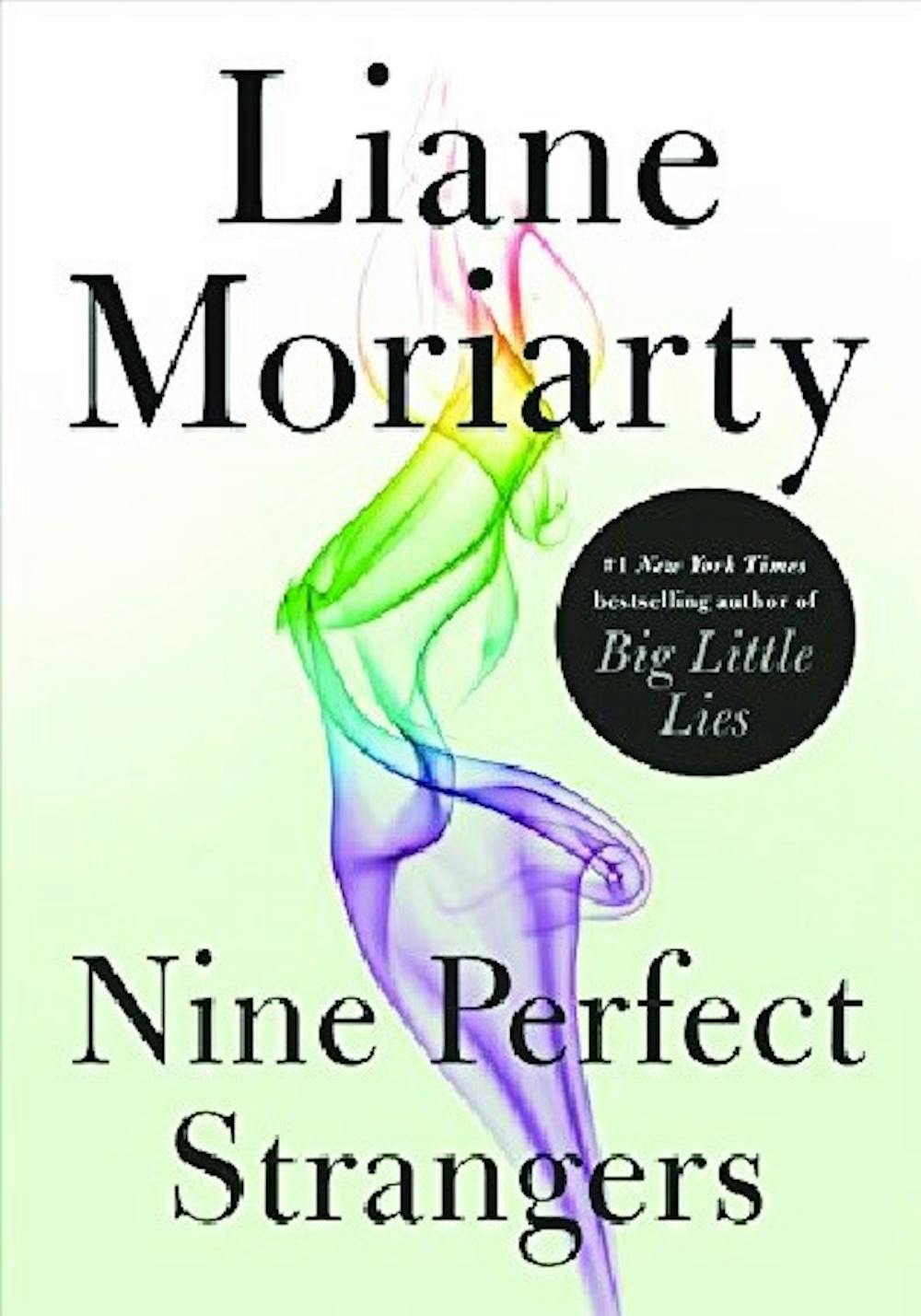Liane Moriarty, the author of The New York Times bestseller “Big Little Lies,” came out with another page-turner that kept me guessing until the very end.
“Nine Perfect Strangers” takes place at a health resort, Tranquillum House, in Australia. The cast of characters includes Frances, the middle-aged romance author with a bad back; Tony, a man who needs to start life over; Lars, a health resort junkie; Carmel, a recently divorced woman with four daughters; Ben and Jessica, a couple who is on the brink of breaking up; and the Marconi family, which is in dire need of relaxation. Running Tranquillum House is the eccentric Masha along with the wellness counselors Yao and Delilah.
One of my favorite things about this book was the characters. The story itself was slow-moving, but the characters were always the one who kept me on my toes. Each chapter has a different point of view about the same events and having that extra window into each of the characters’ minds always keeps the story interesting. If this particular book had been written with one voice instead of 12, I don’t think it would have had the same impact. Everyone at Tranquillum House has a secret and Moriarty does an exceptional job of not giving away anything too quickly.
While I loved the characters and think they added a lot of depth to the book, the storyline itself was almost dull. Being so involved in the characters made me want to continue reading but the story itself is extremely slow and not as shocking as I thought it was going to be. The twist comes around the middle of the book, and I was surprised but already had more interesting ideas in my head, which led to a letdown once it was revealed.
I believe that an ending can make or break a story. The book could be amazing but the ending could just ruin it all. With this book, I felt that the ending saved the rest of the story by giving the reader a glance at the strangers’ lives after Tranquillum House. It was a perfect mix of happy but realistic, and even addressed some issues that I forgot about while reading.
Moriarty includes issues like drug addiction, beauty standards, loss and guilt throughout the story and gives readers the resources she used at the end of the book, which I think is great for readers who want to know more about any of these issues. The great thing about Moriarty’s writing is that even though these issues are bought up, she deals with them in a delicate yet very real way, never mentioning anything overly graphic for those who are squeamish.
At 453 pages this book is not a very quick read and requires time to take in. The chapters are broken up very nicely though, with the longest being around 20 pages and the shortest being around a paragraph, which makes reading the story less daunting. While I personally love character backstories and development, that aspect can be a lot of information to wade through for some readers. This book was being marketed as a psychological thriller but it came across as literary fiction by the end.
If you were a fan of “Big Little Lies,” then this book may be a letdown for you, and it's important to note that this really isn’t a book for everyone. Readers, however, who believe characters make the story and are more invested in the development of those characters would probably enjoy this book.














